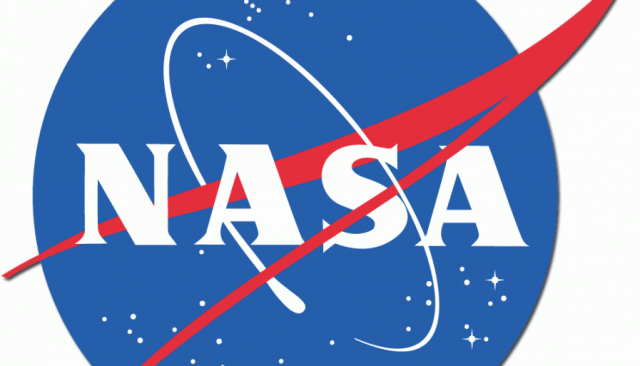The commercial crew program will now operate under a Financial Acquisition Regulation (FAR) system
From Ars Technica: NASA’s Commercial Crew gains support in Congress

It appears that SpaceX’s success with the Dragon spacecraft has won some much-needed space in the US House of Representatives. Congressman Frank Wolf (R-VA) announced Tuesday that his office reached a truce with NASA regarding the Commercial Crew program. Under the agreement, Wolf will lower his opposition to Commercial Crew and hopefully help NASA gain better funding.
Wolf chairs the House Appropriations Subcommittee on Commerce, Justice, Science and Related Agencies, which controls NASA’s budget. His subcommittee has consistently hit the Commercial Crew Development program (CCDev) with heavy cuts. NASA Administrator Bolden has stated that the cuts have delayed access to the Space Station by American vehicles by at least a year, with this year’s cuts expected to delay American access again. In hearings, some of Wolf’s subcommittee members have seemed intent on using the coming Space Launch System (SLS) to ferry astronauts to the Space Station, even though this service would come at a price that’s about ten times higher.
In April, Wolf included language in the 2013 spending bill’s accompanying report that stopped just short of requiring NASA to drop its Commercial Crew competition. Wolf wanted NASA to immediately downsize the program from the current four competitors to either a single “competitor” or a well-funded leader and a weakly funded follower. Commercial space backers have worried that the language would succeed in essentially discontinuing CCDev, given that similar tactics have been used in the Senate.
from Ars Technica
From Engadget: NASA gets two ‘Hubble-class’ military telescopes, fist-pumps with joy
Imagine all you wanted for Christmas was a telescope. As you frantically peel off layer after layer of wrapping, there it is — your brother’s old one. Well, okay, if your brother was the National Reconnaissance Office (and you were NASA) this might not seem quite as unjust. Thankfully so, as that’s effectively what’s just happened. The NRO has given NASA two 2.4-meter “space qualified” telescopes and satellite casings for it to play with. The gifts — which can observe about 100 times the area of the Hubble telescope — could complement existing projects and provide much-needed resources at the space agency. As there is currently no funded mission for them, however, they’ll remain firmly on the ground for now, but at least this implies they’re not needed elsewhere — hinting at improved international relations. Unless the NRO just got an upgrade?
from Engadget
From Morning Edition: Safeway Meat Clerk Reinstated After Fight
Ryan Young saw a pregnant woman being kicked by her boyfriend. He leaped out from behind the meat counter and intervened. Safeway suspended him, citing a zero-tolerance policy for workplace violence. But after the union took up his cause and people boycotted the store, Safeway reinstated Young, calling his action “commendable.”
from Morning Edition
From Ars Technica: Oracle v. Google: no patent infringement found

Oracle v. Google
- Oracle v. Google: the road ahead
- Oracle tells jury “clean room” not enough to avoid patent infringement
- Oracle v. Google patent phase wraps up
- Oracle to pursue longshot claim for copyright damages
- Oracle’s copyright win may not amount to much as patent phase unfolds
Oracle Corp.’s long legal crusade to get a cut of Google’s Android revenue is drawing to an unsatisfying close for the company. A ten-person jury found today that Google did not infringe two Java-related patents that Oracle had used to sue the search giant.
That means Oracle isn’t likely to get anything at all from the trial, other than a tiny amount of damages from one copied function. The trial dragged on for nearly six weeks in a San Francisco federal courtroom, and both sides hired some of the nation’s top technology lawyers to try the case.
Judge William Alsup, who oversaw the proceedings, thanked the jurors for their hard work on the case. He noted that the six-week trial was the longest civil trial he had presided over in his judicial career.
from Ars Technica
From Engadget: Mind-operated robot arm helps paralyzed woman have her cup o’ joe
Researchers at the Braingate2 consortium have made a breakthrough that allows people with spinal cord or stroke injuries to control robotic limbs with their minds. The original project allowed subjects with motor cortex-implanted chips to move cursors on a screen with their minds, but they can now command DEKA and DLR mechanical arms to grasp foam balls and sip coffee. Researchers noted that dropped objects and missed drinks were frequent, but improved brain sensors and more practice by subjects should help. To see the power of the mind move perhaps not mountains, but good ol’ java, jump to the video below.
from Engadget
From News: 30-Year Mortgage Rates At Record Low 3.79 Percent
Average U.S. rates for 30-year and 15-year fixed mortgages fell to record lows for the third straight week. The rate on the 30-year loan dipped to 3.79 percent. The 15-year mortgage, a popular option for refinancing, declined to 3.04 percent.
from News


